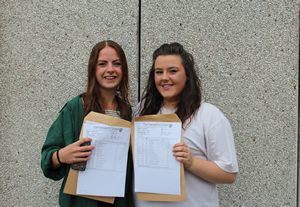Religious Studies
Religious Studies offers students an academic insight to Philosophy and Ethics, as well as further advancing their knowledge gained about religion from GCSE. The course contains three components: Philosophy, Ethics and Christianity. Students will enjoy topical debates on contemporary issues of morality, as well as exploring the deep questions people may ask about God and the world we live in. The course builds critical and evaluative skills valued by top universities and employers, and is recognised and accepted by universities such as Oxford and Cambridge. Religious Studies is taught by the Head of Department (Mrs Walker) and an Assistant Head Teacher (Mrs O’Regan), both who have taught A Level Religious Studies for over a decade.
Course specification:
We follow the AQA Religious Studies specification (7062). A link to the course can be found here:
https://www.aqa.org.uk/subjects/religious-studies/as-and-a-level/religious-studies-7062
A more detailed specification can be found here:
https://filestore.aqa.org.uk/resources/rs/specifications/AQA-7062-SP-2016.PDF
Philosophy of religion
- Arguments for the existence of God
- Evil and suffering
- Religious experience
- Religious language
- Miracles
- Self and life after death.
Ethics and religion
- Ethical theories
- Issues of human life and death
- Issues of animal life and death
- Introduction to meta ethics
- Free will and moral responsibility
- Conscience
- Bentham and Kant
Christianity
- Sources of wisdom and authority
- God/gods/ultimate reality
- Self, death and the afterlife
- Good conduct and key moral principles
- Expression of religious identity
- Religion, gender and sexuality
- Religion and science
- Religion and secularisation
- Religion and religious pluralism
Assessment:
Students will take two external exams at the end of Year 13. One paper will cover Philosophy and Ethics, the other will be on Christianity and Dialogues (questions which draw all 3 components together).
Throughout the two years, students will be assessed by their class teacher at the end of each unit with a timed essay, as well as informal assessments in class.
University and Career progression:
Previous students have gone on to study a range of subjects at universities including Theology at Cambridge, Law at Nottingham and War Studies at Kent. Religious Studies can lead to a variety of careers including:
- Law
- Nursing
- Advice worker
- Archivist
- Charity fundraiser
- Counsellor
- Civil Service administrator
- Community development worker
- International aid/development worker
- Mediator
- Newspaper journalist
- Police officer
- Youth worker
A Level Results
We have an excellent track record of achievement, based on individual student starting points.
| Year | A* | A | B | C | D | E | U |
| 2021 | 2 | 3 | 2 | 6 | 1 | 1 | U |
| 2020 (Centre Assessed) | 2 | 3 | 5 | 4 | 1 | 0 | 0 |
| 2019 | 0 | 3 | 9 | 5 | 7 | 0 | 0 |
Students studying RS should:
- Have an open mind
- Enjoy a healthy discussion and debate
- Be prepared to read around the subject
- Try to see things from different points of view
- Be able to evaluate the ideas presented by others
- Have a reasonable level of English and essay writing skills
- Have an interest in religion, philosophy and contemporary ethical issues
For further information contact Mrs Walker


